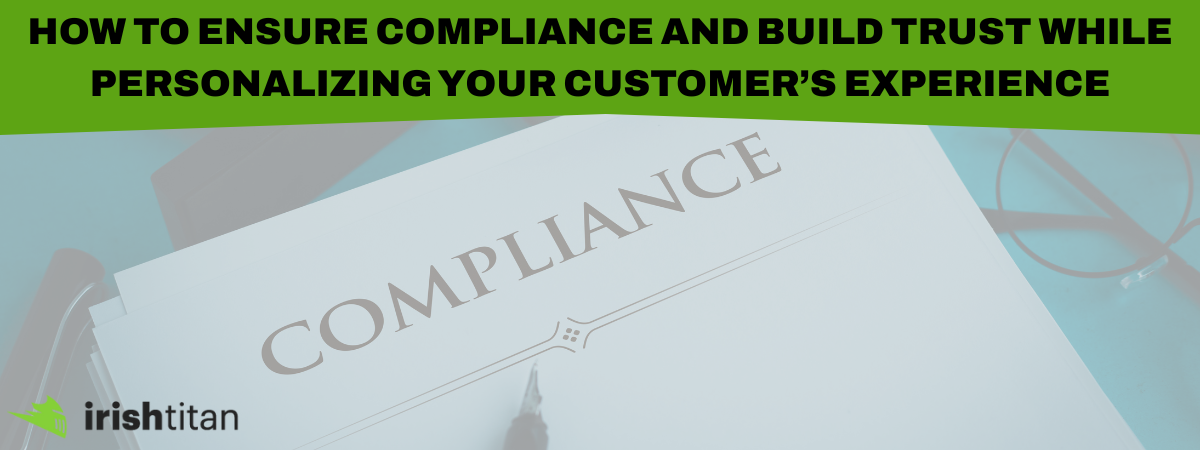How to Ensure Compliance and Build Trust While Personalizing Your Customer’s Experience
The Balancing Act: Personalization vs. Privacy
In the ecommerce age, personalization is the expectation—but privacy is the demand. Consumers want tailored experiences, but not at the cost of their data security. That’s where brands must walk the tightrope between personalization and compliance. Fail to deliver personalized experiences? You risk irrelevance. Overstep on data use? You lose trust—and potentially face legal consequences.
Why Compliance Matters More Than Ever
There are many newer AI-focused laws, global regulators are making it clear: your customer’s data is not your property—it’s a privilege to use it. Brands that fail to comply risk fines, lawsuits, and irreparable brand damage. But beyond legal necessity, privacy compliance is now a competitive advantage. In a world of growing data fatigue and misinformation, brands that lead with trust win hearts—and wallets.
Enter Dataships: Compliance + Personalization in One
Dataships is an example of a tool purpose-built for ecommerce brands who want to personalize responsibly. It helps merchants:
Automatically stay compliant with GDPR, CCPA, and other global regulations
Collect consent transparently, allowing customers to opt in or out easily
Segment based on data permissions, ensuring you only market to users with the right consent
Sync privacy preferences across tools like Klaviyo or Mailchimp so your entire stack plays by the rules
Think of it as your behind-the-scenes privacy assistant—keeping you compliant so you can focus on crafting exceptional, ethical experiences.
Ethical Personalization Tactics
Here’s how to create powerful AND privacy-respecting customer journeys:
1. Use First-Party Data Thoughtfully Stick to data customers have willingly shared—like preferences, behaviors, or past purchases. Avoid shady third-party data or inferred profiling.
2. Be Transparent at the Point of Collection Whether it’s a form, quiz, or checkout field, tell customers how their data will be used—and what they get in return (exclusive discounts, better recommendations, early access, etc.).
3. Give Control Back Let users easily manage their preferences. Dataships enables this with self-service privacy portals where users can view, edit, or delete their data.
4. Segment with Consent in Mind Just because you can personalize something doesn’t mean you should. If a user hasn’t opted into SMS, don’t send personalized texts. If they’ve unsubscribed from marketing, don’t push “special offers.”
Building Trust Through Transparency
Personalization works best when it feels like a service, not surveillance. To get there:
-
Speak plainly in your privacy policies.
-
Over communicate benefits. “We use your preferences to show you products you love—not random stuff.”
-
Highlight your privacy-first values.
-
Make trust part of your brand DNA.
Transparency isn’t just a legal obligation—it’s a trust-building strategy.
Final Thought
Data privacy isn’t a blocker to personalization—it’s a blueprint for doing it right. With tools like Dataships, brands can navigate compliance confidently while still delivering tailored, high-converting experiences. Trust is the ultimate currency in ecommerce, and every data point your customer shares should be treated like gold. Want help crafting opt-in flows or compliant personalization strategies? We’ve got ideas.
Trust us, you’re gonna want this in your inbox.
Join the Irish Titan sphere of influence. We'll send a couple emails a month. No trash, no spam, just the shenanigans we get up to.
More from Ecommerce...

Code Red: Your Last-Minute Holiday E-commerce Toolkit. You're a bit late to the holiday planning party, and the Black Friday/Cyber Monday rush is right around the corner. But don't panic—the most c

When customers reach out, they’re not just asking for help — they’re handing you raw data on how your business is doing. Every ticket, DM, or email carries insight into what’s working, what’s confusing, and where you can improve. The challenge? Making sure none of that feedback slips through the cracks.

Customer support will always matter — but here’s the truth: most customers would rather not need it at all. They don’t want to wait in a chat queue or refresh their inbox for an answer. They want solutions, fast. That’s the philosophy behind “the best service is no service” — when customers can solve problems themselves, everyone wins.





